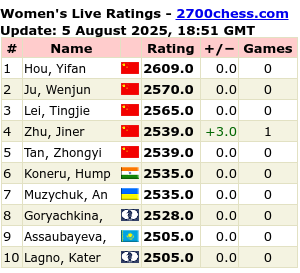
On THIS LINK on my blog, you can read more about the Boer War. You will find some Boer War art, poetry and a lengthy entry about the war with many links to other sites too.
Today I was inspired by Rosalind due to her post about the concentration camps during the British/Boer-War in the late 1800’s-early 1900’s…I’ve got a book about the concentration camps and it was so sad to read how those people were treated and the circumstances they lived in! My mum has had a relative – Dorie Burger – that was there and in this book she was also quoted where she mentioned who died again in the camp and how they were rationed on food and that the food wasn’t enough. According to her, many children were still hungry at night and couldn’t sleep due to insufficient food. You just feel like crying when you read the book!
Rosalind’s post also immediately reminded me about the Jews and the holocaust and my very own first English “story”-book… Anne Frank’s diary… as a birthday present when I was 12. My birthday is one day before Anne’s birthday – 12th June – and that made the book – as a child – even more special. I’ve always been interested in War-books, fiction as well as non-fiction. I’ve blogged before about other books written about wars…the Cambodian war… the war in Kosovo…Today, when you see the word “Holocaust” it usually refers to this time in which the German Army systematically killed nearly 6 million Jews. People need to learn about the Holocaust and the reasons why it happened. Some say it never happened at all, but we know it did because there are too many witnesses and survivors who lived to tell the world about those darkest of times. Click HERE to visit the site about Anne Frank and there’s a link to the museum.

It might not seem the most obvious material for a song-and-dance number, but the Diary of Anne Frank will take centre stage next month when a Spanish musical based on the most famous book about the Holocaust opens in Madrid.
“When I first came here they [the foundation] had this doubt, about how somebody can do a musical of a story like this,” said Alvero. “The thing we want to do is … through the music, to understand the story better,” he said.
Once the foundation had given its permission, the hunt for actors capable of mixing the sombre nature of the material with the high energy of a musical began. Castillo said she felt honoured to be playing such an important role, and that there were things the two had in common.
The Franks moved from Germany to Holland in 1933, when Anne was four. Castillo’s mother fled from Cuba when Isabella was young, and they lived in hiding in Belize before immigrating to Miami.
Please click HERE for the original article about the musical.
Image: Gardenofpraise
Today if you visit the site of the Bergen-Belsen concentration camp you can see a memorial to Anne Frank and her sister Margot.
This picture shows the streetside view of the building. Otto Frank’s offices were at the front of the building and the hiding place was at the rear.
The hiding place became known as the Secret Annex. It was located at 263 Prinsengracht. The Frank family would occupy two rooms on the first floor. A week later Mr. and Mrs. Van Pels and their son would move into the two rooms on the second floor. From Peter’s tiny room they could access the attic where food was stored. There was a small bathroom on the first floor. Images: gardenofpraise.com
This is what my book looks like…and the next book is a picture book which I’ve bought for my primary y5/6 kids… it’s really an easy book for them to understand Anne’s story.
This book is one of many on my bookshelf that I still need to finish reading…it’s about a gripping account of how a group of young children who, when forced into isolation by the Nazi occupation of their home town in Czechoslovakia, refused to be silenced and fought back by creating and circulating their own newspaper called Klepy (which means gossip). The “Underground Reporters” chronicles — the lives of the young people who contributed to the newspaper. On the blurb it says: “…They founded a secret newspaper that was to become an inspiration to the Jews of Budejovice, uniting them and giving them something to fight for and be proud of. These young people were the Underground Reporters and this is their story.”
This book seems to be a great book to read, I’ve just ordered it from Amazon. You can read the review I’ve found on the internet.
Review from this site:historicalnovelsociety.org/london-conference.htm
No Place for a Lady
Ann Harries
The thrilling and sweeping new novel from the award-winning author of
‘Manly Pursuits’
It is the turn of the twentieth century and war is razing the Boer Republics of South Africa to the ground. Kitchener’s army has intensified its most barbarous campaign: to burn down the homes of thousands of obstinate Boers, forcing a desperate migration to disease-ridden concentration camps. Yet the vastly outnumbered Boers still will not surrender to the British.
In the midst of these horrors is a group of women, each fighting their own battle. Sarah Palmer is an angelically pretty nurse who arrives from England with her madcap friend Louise. Their relationship is threatened when Sarah falls deeply in love with a sick Colonial trooper of humble origin as Louise cannot help but become painfully jealous of her friend’s natural magnetism and beauty. And then arrives the dynamic Englishwoman, Emily Hobhouse, who has come to bring succour to the destitute and dying women and children and to stir the consciences of Britain over the holocaust of the camps.
As their dramas unfold, so too does the history of the war. It was intended to be a quick annexation of the Boer Republics but it turned in to a protracted, savage conflict. Harries shows a depth of knowledge and compassion in her writing; the involvement of the blacks who were promised the vote if they joined the British side, and the injustices and deep inequalities in South Africa which lie at the heart of the story. ‘No Place for a Lady’ is historical fiction at its finest. Ann harries has drawn unforgettable characters and made the period with all its complexities come vividly alive. This is a thrilling, beautifully written, and utterly compelling novel.
Ann Harries was born and educated in Cape Town, where she worked in township schools and community centres. On moving to England she became active in the anti-apartheid movement. The author of the acclaimed Manly Pursuits, she divides her time between the Cotswolds and South Africa.
‘History is ingeniously rewritten in this witty and engaging novel.’
J.M. Coetzee
‘Outstanding…Funny, well observed and beautifully written.’
Sunday Times
‘Brilliantly funny and inventive…Enjoyable and vivid throughout… I haven’t turned any pages faster this year than I have turned these.’
Spectator
‘A hugely ambitious novel that takes on an impressive range of themes, from history, colonialism and racism to science, evolution, sexual repression and betrayal…Both an entertaining read and a richly evocative portrait of that era.’
Observer













